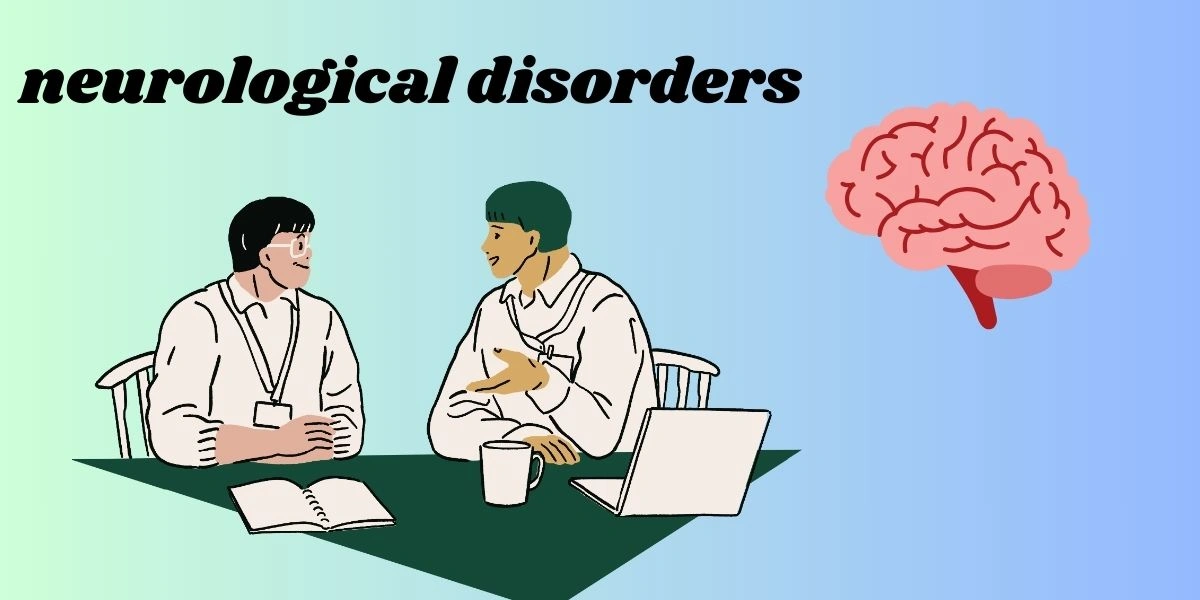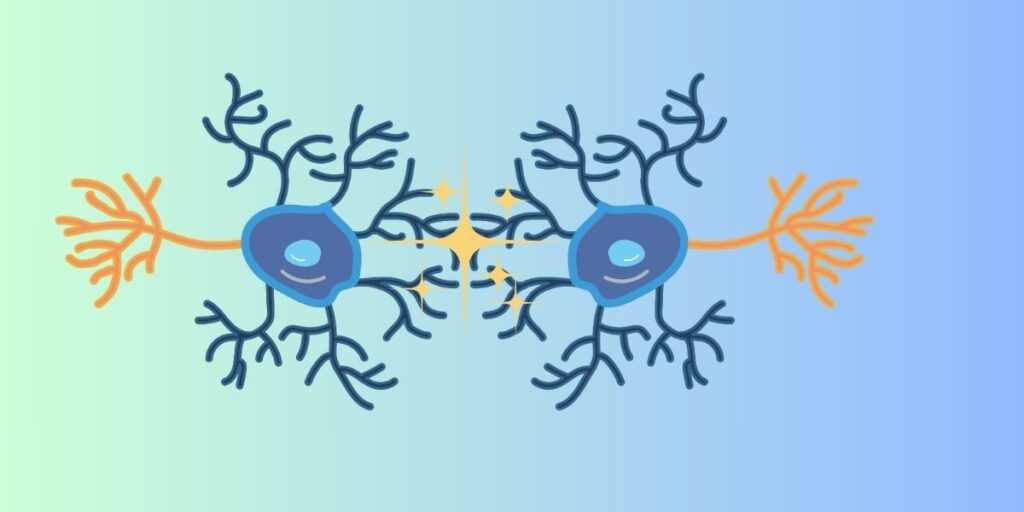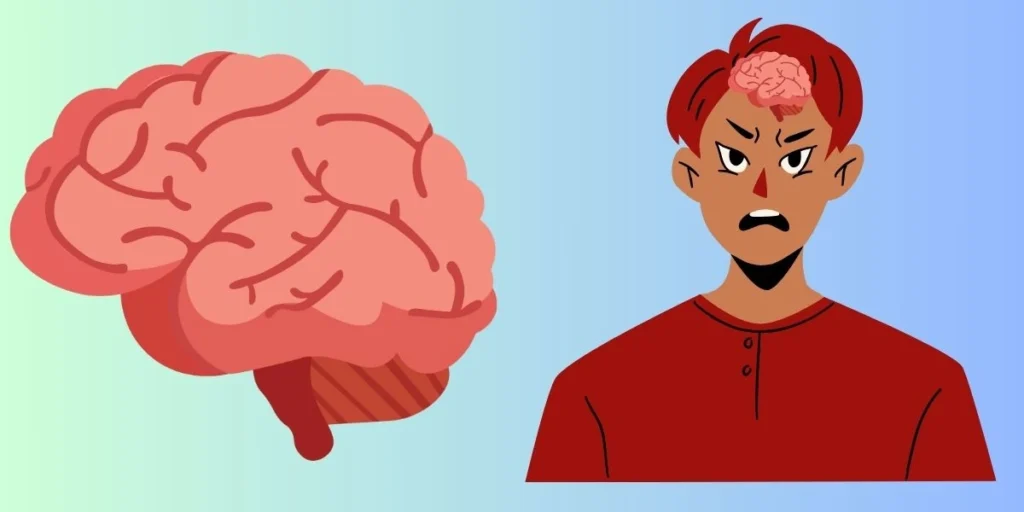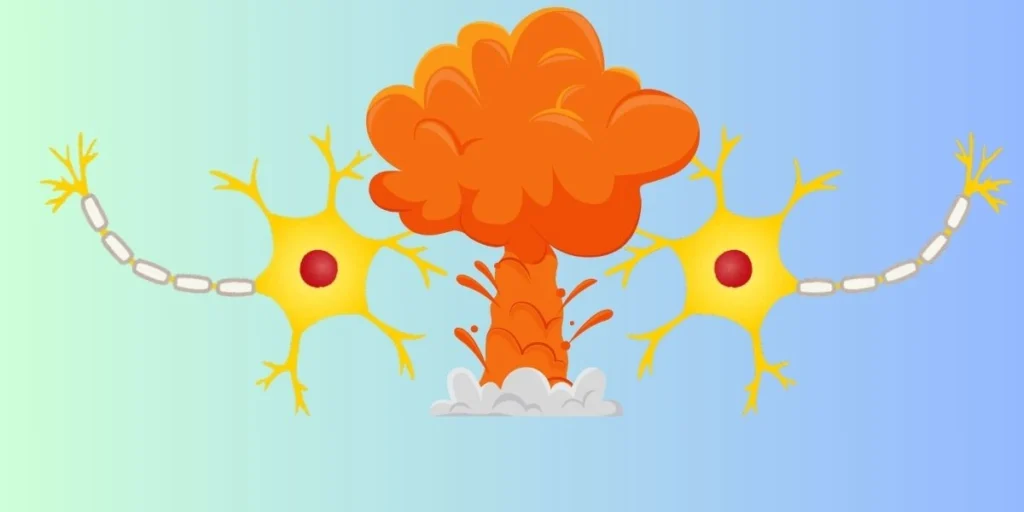
Neurological Disorder: Welcome to the enigmatic realm of neurological disorders, where the complexities of the human brain unveil themselves in myriad forms. From the subtle nuances of cognition to the profound impact on daily life, these disorders paint a tapestry of challenges and resilience.
Join us on a journey through the labyrinth of the mind as we explore the fascinating world of neurological disorders.
Table of Contents
What is a Neurological disorder?

Neurological disorders are like puzzles waiting to be solved, each one presenting a unique challenge to both the individual and the medical community. These disorders disrupt the intricate symphony of the brain, affecting everything from movement and sensation to memory and cognition.
Imagine a kaleidoscope of sensations and experiences, where the boundaries between reality and perception blur, and the mind becomes a labyrinth of mysteries waiting to be unraveled.
Yet, within this complexity lies the beauty of the human experience—the resilience to overcome adversity, the determination to find answers, and the compassion to support one another on this journey through the labyrinth of the mind.
List And Examples of Some Neurological Disorders
| Type | Description | Impact | Treatment |
| Migraine | A debilitating headache disorder characterized by recurrent episodes of intense throbbing pain, often accompanied by nausea, vomiting, and sensitivity to light and sound. | Migraines can significantly impair daily functioning and quality of life, leading to missed work or school days and decreased productivity. | Management strategies may include lifestyle modifications, medication, and alternative therapies such as acupuncture or biofeedback. |
| Epilepsy | A neurological condition characterized by recurrent seizures, which are sudden, uncontrollable electrical disturbances in the brain,. | Seizures can range from mild to severe and may result in loss of consciousness, convulsions, or unusual behaviors. Epilepsy can affect individuals of all ages and may require lifelong management. | Antiseizure medications are often prescribed to control seizures, but in some cases, surgery or other interventions may be necessary. |
| Alzheimer’s Disease | A progressive neurodegenerative disorder that primarily affects memory, cognition, and behavior, leading to significant impairment in daily functioning. | Alzheimer’s disease is the most common cause of dementia in older adults, gradually robbing individuals of their independence and ability to perform basic tasks. | While there is currently no cure for Alzheimer’s disease, medications and non-pharmacological interventions may help manage symptoms and improve quality of life. |
| Parkinson’s Disease | A chronic and progressive movement disorder characterized by tremors, stiffness, bradykinesia (slowness of movement), and impaired balance and coordination. | Parkinson’s disease can significantly affect mobility, speech, and overall functioning, leading to difficulties with activities of daily living. | Medications, physical therapy, and deep brain stimulation are commonly used to manage symptoms and improve quality of life for individuals with Parkinson’s disease. |
| Multiple Sclerosis (MS) | An autoimmune disorder that affects the central nervous system, causing inflammation, demyelination (damage to the protective myelin sheath), and subsequent neurological symptoms. | MS can manifest with a wide range of symptoms, including fatigue, weakness, sensory disturbances, and difficulties with mobility and coordination. | Disease-modifying therapies, symptom management strategies, and rehabilitation interventions are employed to help individuals with MS manage their condition and maintain optimal function. |
According to a new study, chemicals found in popular household products may play a role in the development of neurological disorders like autism and multiple sclerosis… pic.twitter.com/yT77xGhsD4
— Tessa💜🐒 (@DrTessaT) March 26, 2024
Is OCD a Neurological Disorder?

Absolutely! OCD, or obsessive-compulsive disorders, is indeed a neurological disorder. Here’s why:
- Brain Chemistry: OCD involves imbalances in neurotransmitters like serotonin, which play a crucial role in regulating mood and behavior.
- Structural Changes: Research suggests that individuals with OCD may have differences in brain structure, particularly in areas associated with decision-making, impulse control, and emotion regulation.
- Genetic Factors: There is evidence to suggest a genetic component to OCD, with certain genes thought to increase susceptibility to the disorder.
- Environmental Triggers: While genetics play a role, environmental factors such as trauma or stress can also contribute to the development or exacerbation of OCD symptoms.
- Neurological Circuitry: OCD is characterized by dysfunctional neural circuits, particularly involving the orbitofrontal cortex, anterior cingulate cortex, and basal ganglia, which govern processes like decision-making and habit formation.
- In essence, OCD is more than just a behavioral quirk—it’s a complex neurological condition influenced by a combination of genetic, environmental, and neurobiological factors.
Is Schizophrenia a Neurological Disorder?

Yes, Schizophrenia is indeed a neurological disorders characterized by disruptions in thought processes, perceptions, and emotions.
It affects the way a person thinks, feels, and behaves, often leading to hallucinations, delusions, and disorganized thinking.
Schizophrenia impacts the brain’s ability to interpret reality accurately, making it challenging for individuals to navigate daily life.
Early detection, comprehensive treatment, and ongoing support are crucial in managing this complex disorder and improving quality of life.
Autism Neurological Disorder
What is Autism?
Autism is a complex neurological disorders that affects a person’s ability to communicate, interact socially, and navigate sensory experiences.
What Causes Autism?
The exact cause of autism is still unknown, but it is believed to involve a combination of genetic and environmental factors.
What are the Signs and Symptoms?
Signs of autism can vary widely, but common symptoms include difficulty with social interaction, repetitive behaviors, sensory sensitivities, and challenges with verbal and nonverbal communication.
How is Autism Diagnosed?
Autism is typically diagnosed through a comprehensive evaluation by healthcare professionals, including developmental pediatricians, psychologists, and speech therapists, who assess behavior, communication, and developmental milestones.
What Treatments and Therapies are Available?
While there is no cure for autism, early intervention and individualized therapies can greatly improve outcomes. These may include behavioral therapy, speech therapy, occupational therapy, and educational interventions tailored to the individual’s needs.
What is the Neurodiversity Movement?
The neurodiversity movement emphasizes the value of neurological differences, including autism, and advocates for acceptance, accommodation, and support rather than seeking to “cure” or eliminate these differences.
How Can I Support Individuals with Autism?
Show empathy, respect, and understanding. Educate yourself about autism and its challenges. Foster an inclusive environment that celebrates neurodiversity and promotes acceptance and inclusion for individuals with autism.
Neurological Disorder Pmo Demon Faces

Understanding PMO Demon Faces: Dive into the realm of neurological disorders with PMO demon faces, a condition characterized by vivid hallucinations of sinister or grotesque faces. Explore the unsettling nature of these hallucinations and their impact on daily life.
Symptoms and Manifestations: Uncover the diverse symptoms of PMO demon faces, ranging from fleeting glimpses of faces in peripheral vision to full-blown hallucinations that can be distressing and disorienting. Learn how these manifestations vary in intensity and frequency among individuals.
Causes and Triggers: Explore the underlying causes and triggers of PMO demon faces, including neurological imbalances, stress, fatigue, and certain medications. Gain insights into the complex interplay of factors that contribute to the onset and exacerbation of this condition.
Diagnosis and Assessment: Delve into the diagnostic process for PMO demon faces, which often involves detailed assessments by neurologists and psychiatrists. Learn about the importance of ruling out other neurological conditions and psychological factors to accurately diagnose and manage the disorder.
Treatment Options: Discover the various treatment approaches available for managing PMO demon faces, including medications, cognitive-behavioral therapy, and lifestyle modifications. Explore how personalized treatment plans are tailored to each individual’s unique needs and experiences.
Is Dyslexia a Neurological Disorder?
Yes, dyslexia is indeed a neurological disorders. It affects the brain’s ability to process written language, leading to difficulties in reading, writing, and spelling despite normal intelligence and adequate education.
Is Cerebral Palsy a Neurological Disorder?
Absolutely! Cerebral palsy is indeed a neurological-disorders. It affects muscle movement, coordination, and posture, resulting from damage to the developing brain, often before birth or during infancy.
Is Multiple Sclerosis a Neurological Disorder?
Absolutely! Multiple Sclerosis (MS) is indeed a neurological-disorders characterized by the immune system mistakenly attacking the protective covering of nerves in the brain and spinal cord.
This results in a wide range of symptoms, including fatigue, difficulty walking, numbness or weakness in limbs, and problems with coordination and balance.
While there is currently no cure for MS, various treatments and therapies can help manage symptoms and improve quality of life for those affected by this condition.
Is Bipolar a Neurological Disorder?
Absolutely! Bipolar disorder is indeed considered a neurological-disorders. It affects the brain’s structure and function, causing shifts in mood, energy levels, and activity levels. These fluctuations can have a significant impact on a person’s daily life and relationships.
Is Stroke a Neurological Disorder?
Yes, Stroke is a neurological-disorders
- Definition: Stroke is a neurological-disorders caused by a disruption of blood flow to the brain, leading to damage of brain cells.
- Types: There are two main types of stroke: ischemic stroke, caused by a blockage in a blood vessel supplying the brain, and hemorrhagic stroke, caused by bleeding in the brain.
- Symptoms: Symptoms of stroke can include sudden weakness or numbness in the face, arm, or leg, difficulty speaking or understanding speech, severe headache, and loss of coordination or balance.
- Risk Factors: Risk factors for stroke include high blood pressure, smoking, diabetes, obesity, high cholesterol, and a family history of stroke.
- Treatment: Treatment for stroke typically involves emergency medical care to restore blood flow to the brain, followed by rehabilitation to regain lost function and prevent future strokes.
- Prevention: Stroke prevention strategies include maintaining a healthy lifestyle, managing risk factors, such as high blood pressure and cholesterol, and seeking prompt medical attention for symptoms of stroke.
Genetic Neurological Disorders
- Genetic neurological-disorders are caused by abnormalities in a person’s DNA, impacting the function of the nervous system.
- These disorders can affect various aspects of neurological function, including movement, cognition, and sensory perception.
- Examples of genetic neurological disorders include Huntington’s disease, muscular dystrophy, and familial amyotrophic lateral sclerosis (ALS).
- Symptoms of genetic neurological-disorders can vary widely, ranging from muscle weakness and tremors to cognitive decline and seizures.
- Diagnosis often involves genetic testing to identify specific mutations or abnormalities in the individual’s DNA.
- Treatment options for genetic neurological-disorders are limited, with management focused on symptom alleviation and supportive care.
- Research into these disorders is ongoing, with efforts directed towards understanding their underlying mechanisms and developing targeted therapies.
- Genetic counseling plays a crucial role in helping individuals and families understand the inheritance patterns and potential risks associated with these disorders.
- Early detection and intervention can improve outcomes and quality of life for individuals affected by genetic neurological disorders.
- Advocacy and support groups provide valuable resources and community for individuals and families affected by these disorders, fostering awareness and empowerment
Neurological Disorder Definition
Neurological-disorders are conditions that affect the brain, spinal cord, and nerves, disrupting the normal functioning of the nervous system.
Conclusion
As we journeyed through the intricate landscape of neurological-disorders, we encountered the profound complexities of the human brain and the diverse array of conditions that can impact its function.
From the debilitating effects of migraines to the disruptive symptoms of schizophrenia, each disorder presents its own unique challenges and complexities.
Yet, amidst the challenges, there is resilience, hope, and a shared commitment to understanding, managing, and supporting individuals affected by these conditions.
Disclaimer:
The information provided in this article is sourced from various online resources and is intended for informational purposes only. While we strive to ensure the accuracy and reliability of the information presented, we do not guarantee its completeness or suitability for any particular purpose.
Readers are encouraged to consult with qualified healthcare professionals or specialists for personalized advice and diagnosis related to neurological disorders or any other medical condition. The authors and publishers of this article are not liable for any consequences arising from the use of the information provided herein.
FAQs
What are the common signs and symptoms of neurological disorders?
Common signs and symptoms of neurological-disorders include headaches, seizures, muscle weakness or paralysis, numbness or tingling, coordination problems, cognitive impairment, changes in behavior or mood, and vision or hearing difficulties.
How are neurological disorders diagnosed and treated?
Neurological-disorders are diagnosed through a combination of medical history, physical examination, neurological assessment, and diagnostic tests such as imaging studies (MRI, CT scan) and neurological tests (EEG, EMG).
Treatment varies depending on the specific disorder but may include medications, physical therapy, occupational therapy, speech therapy, surgical interventions, and lifestyle modifications.
What are the risk factors for developing neurological disorders?
Risk factors for developing neurological disorders include genetic predisposition, family history of neurological conditions, age, gender, environmental factors (such as exposure to toxins or infections), head injuries, lifestyle factors (such as smoking, alcohol consumption, and lack of physical activity), and certain medical conditions (such as diabetes, hypertension, and autoimmune diseases).
Is there a cure for neurological disorders?
The availability of a cure depends on the specific neurological disorder. While some conditions may have treatments that can effectively manage symptoms or slow disease progression, there are currently no cures for many neurological disorders.
However, ongoing research and advancements in medical science offer hope for the development of new treatments and potential cures in the future.
How can individuals support loved ones living with neurological disorders?
Individuals can support loved ones living with neurological disorders by providing emotional support, understanding, and encouragement.
They can also help facilitate access to medical care, assist with daily tasks or mobility, advocate for their needs, and educate themselves about the specific disorder to better understand its impact and challenges.
Additionally, participating in support groups or seeking guidance from healthcare professionals can offer valuable resources and guidance for navigating the journey with their loved ones.









